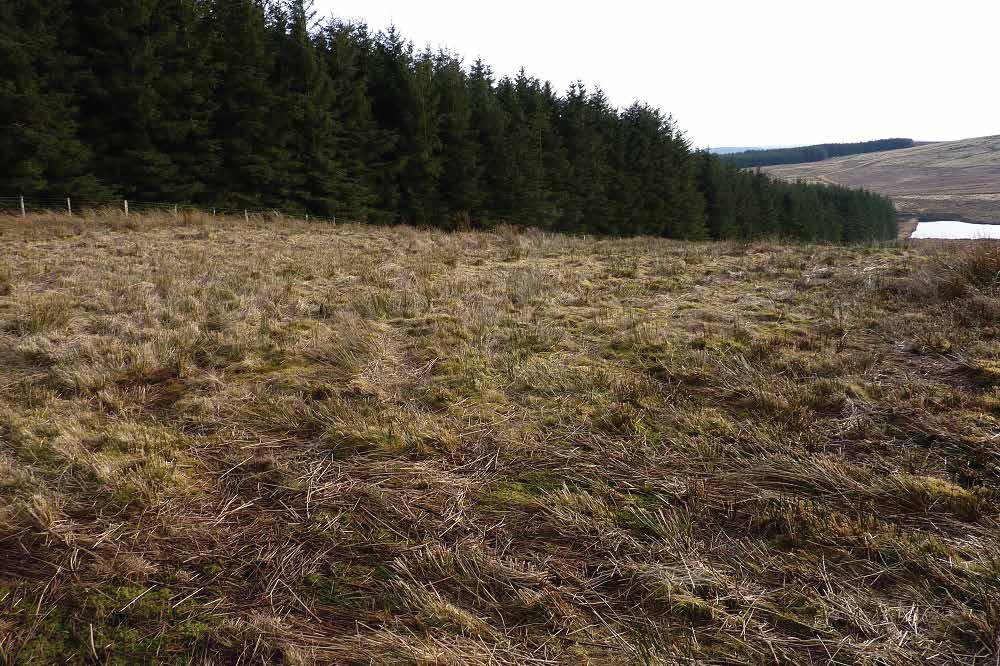
4 minute read
Finding Innovative Ways to Preach the Gospel: in the Era of the Coronavirus Pandemic
Saving the World by Killing Communities in Wales?
By Alun Lenny
Huge fires, devastating floods and rising sea levels are the obvious results of climate change. But one less obvious result is the way that large companies are buying farms in Wales to plant trees in order to create ‘carbon credits’ that enable them to continue polluting the environment whilst threatening the future of communities and the Welsh language in parts of the country. ALUN LENNY explains.
Picture: Brechfa forest
Climate change is the biggest threat to humanity ever, and planting trees on an enormous scale is acknowledged as a progressive way of dealing with the situation, as trees swallow and store CO2, the greenhouse gas that contributes mainly towards global warming. The UK Climate Change Committee wants to see up to 120,000 hectares of trees planted in Wales between now and 2050. That is equivalent to 460 square miles.
Trees and the carbon credit trade
Alongside the forest strategy, the Emissions Trading Scheme (ETS) was created. Under this scheme, a cap was put on large companies that produce high levels of CO2, along with a fine of £1,000 for every tonne of carbon that is over-produced. But it is possible for these companies to buy ‘carbon credits’ to counter the over-production and through that avoid paying any fines. A cheap and easy way (around £22 per tonne) is to buy the carbon credits in an auction from companies who buy land and plant trees on a huge scale in order to produce the credits – this is known as carbon offsetting. This is a market where there is great profits to be made in the name of saving the environment. As well as trading in carbon credits, these companies from outside Wales have already claimed £1.3 million pounds in grants under the Glastir Woodland Creation scheme run by the Welsh Government in order to plant more trees in our country. This public money derived from the pockets of taxpayers in Wales flows across Offa’s Dyke into the coffers of Foresight, an investments company based in the Shard, London, has bought Frongoch, Brynglas and Esgair Hir, farms in the Cwrt y Cadno area, and Banc farm in the area nearby in order to plant trees. According to John Thomas, who lived at Frongoch all his life until three years ago, the land of Wales and the way of life is being sacrificed so that big companies can continue to pour carbon into the environment. Across the border in Powys, three farms in the Llanwrtyd area have been bought for the same reason. Susan Price, the former secretary for the congregational chapel in Llanwrtyd, said that the situation reminded her of the poet Gwenallt’s words in his poem ‘Rhydcymerau’ about ‘trees where there were communities, forests where there had been farms,’ as livelihoods, the language and communities disappear.
international companies who are buying family farms to turn into vast forests.
Trees where there were communities
– Dr Bonnie Waring, Imperial College London.
Campaigners and scientists’ doubts
Whilst we accept that trees swallow and store CO2, Greenpeace, the international organisation that has campaigned for the future of the environment for over 50 years, doubt how much effect this forest strategy will have. According to Greenpeace, the best way to fight climate change is to leave the carbon – coal, gas, oil – in the ground, they have little to say about the hypocrisy of the giant companies that are buying into the tree planting scheme whilst continuing to pollute on a grand scale. Greenpeace state that it is not possible to buy our way out of this climate emergency.
This is also the opinion of a report by Dr Bonnie Waring of Imperial College London. It will take decades for new trees to be effective as CO2 sinks, says Dr Waring. It is important that those who create the policies communicate with local communities and scientists in order to find the best way forward.

Entire Welsh farms being bought by outside companies for tree planting ‘almost on a weekly basis’. Photo by Peter Aikman / Edge of Rhyd y Felin forest / CC BY-SA 2.0.
Local governance
It is apparent that this has not happened in Wales. As the tree planting strategy has started, some councils and members of parliament see the need to get to grips with the situation by trying to ensure local governance in order to mitigate the harm to communities. If this succeeds, and trees are planted in the right places and on a reasonable scale, somethings that is seen as a threat at present could be beneficial to farmers and rural communities. But in the face of market forces, this will be an enormous challenge.
Alun Lenny was a BBC TV and radio journalist for 30 years, broadcasting through the medium of Welsh and English. He lives in the town of Carmarthen, where he’s an elected councillor and former mayor. Alun has been a lay preacher for 18 years and is a deacon at Bwlch-y-corn Congregational chapel, which is a member of UWI.









